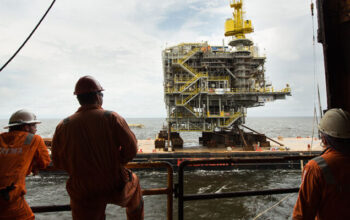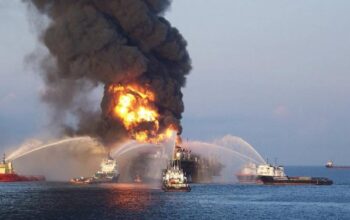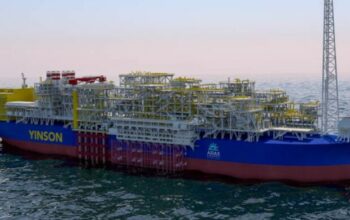Consultancy Fitch Solutions estimates that oil production in sub-Saharan Africa will fall 3.7 percent this year, dragged by the fall in Nigeria, but foresees a “brighter future” for the region’s gas.
“We expect production of crude, natural gas and other liquids to fall by 3.7 percent this year, impacted by the persistent decline in Nigeria, the region’s largest oil producer, which has been significantly affected by reduced investment in current wells and due to a lack of maintenance in recent years”, the analysts write.
In an analysis of oil and gas production in the region, sent to investors and to which Lusa had access, Fitch Solutions, owned by the same owners of the financial rating agency Fitch Ratings, writes that, despite the current difficulties, “the beginning of production in several new markets will help to maintain positive growth in the medium term, but still struggling to return to pre-pandemic levels”.
The outlook for the evolution of gas production shows, they say, “a brighter future, with production increasing strongly during this decade, supported by the development of large gas resources discovered in West and East Africa”.
Fitch Solutions estimates that sub-Saharan Africa’s GDP will grow 3.2 percent this year, boosted “by high oil prices, which support the region’s exporters, and by the recovery of economic activity”.
While Nigeria is expected to experience a 9.1 percent drop in oil production this year, “positive growth in Angola should help accommodate the general drop in regional production, as exploration activities that are starting by several international companies will boost production by 3.5 percent in this Portuguese-speaking country”.
Angola thus recovers from the strong decline of 9.2 percent in 2021, says the consultant, also noting that prices and the removal of production limits by the Organization of Petroleum Exporting Countries and allies (OPEC+) will help Angola even more to increase production.
In terms of gas production, it is expected to increase from 85.9 billion cubic meters to 150.6 billion cubic meters in 2031, with Mozambique, Nigeria, Mauritania and Senegal leading the increase in production.
“The biggest sector of investment in sub-Saharan Africa over the next few years will be the expansion of liquid natural gas export capacity,” says Fitch Solutions.
While Eni is expected to start producing later this year on the Coral FLNG project, TotalEnergies will only be able to launch production in 2026 and ExxonMobil should only take the final investment decision in 2023, with production starting scheduled for 2027, concludes the consultancy.
![]()




